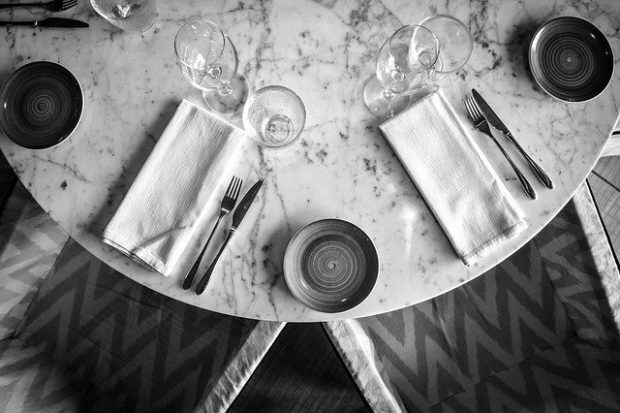You have no items in your cart. Want to get some nice things?
Go shopping
Carlos and John had been business partners for many years and both men knew that Carlos would never have had the courage to start a business had it not been for John. John, after all, was a trustworthy man. He was tall and thin and yet weighted heavily with a kind of seriousness that settled like sand inside him. He was a man of great stature, too, and had a stray wisp of black hair that curled over his left eyebrow, a genuine laugh, and a gift of discerning intuitively what others wanted, leaning his tall figure down to listen, really listen, to what others had to say. Carlos was a small jovial man, with hardly any hair at all, a man who was practical by nature and yet shyer than people suspected. He felt comforted by the serious nature of his friend maybe because he himself felt vacuous some days, hollow, like the bones of a bird.
Carlos, his wife, and his three grown children trusted John intimately and all were grateful for the way he had been there for them throughout their lives whenever problems arose or advice was needed.
In turn, John was grateful for Carlos and his family. Carlos helped him gain confidence when reading the fine print of contracts and when sifting through the tricky minutiae of negotiations, and he loved that his friend trusted him to lead conversations during business lunches. And Carlos’s family accepted him for all he was and all he wasn’t in a way that his own parents never had. Carlos’s family had become John’s family. As the years flew by, the two men’s business efforts paid off. Their business was in something like the insurance industry but Carlos’s wife was never sure she could explain the business’s machinery to anyone but her children.
John had been there when Carlos and his wife were married, when Carlos’s children were born, and when those children went on to marry and have businesses of their own—just as Carlos and his family were there for John when he bought his first apartment in the trendier suburbs of Toronto, when he went through a health scare (that he would never tell his parents about), and when he decided to stop drinking alcohol.
On Sunday afternoons, they often dined together—John, Carlos, and Carlos’s three grown children—and the conversation would sometimes turn to esoteric subjects. One Sunday, the subject was happiness.
“Happiness. It’s a state of euphoria, wouldn’t you say?” one of Carlos’s children said.
“But it can arrive calmly, too,” Carlos nodded, putting a piece of chicken in his mouth.
“Happiness is having what you want, loving what you have, and not needing anything else,” Carlos’s wife said with her knife and fork upright above her plate.
John swallowed a warm mouthful of mashed potatoes, which got stuck slightly in his throat. He wiped his mouth with his napkin. “Whatever it is, it’s temporary.”
“Surely that’s how it’s supposed to be,” Carlos said. “That way we appreciate it when it inevitably flies off into the distance.”
“Maybe,” John said, pushing back the black wisp of hair from his forehead. He reached out and lifted his glass to his mouth, taking a sip of water. He sighed just enough for Carlos’s wife to put her hand on his arm as a way of comforting him.
John knew his friend was only truly happy when he felt the plane taking off at the start of a business trip, his forearm resting near the forearm beside him. Sometimes, if the two men had a blanket around them, they would hold hands as the plane separated itself from earth.
Thadft Monday afternoon, as they arrived in the hotel room, Carolos unpacked his things immediately as he always did. He put everything neatly into drawers and hung his suits, while John scattered his clothes loosely about, here and there, leaving most of his clothes jumbled in his suitcase. The two men joked about the need for one hotel room—to save money—as they always did before lying down next to each other, still joking, still smiling.
When they settled beside each other on the bed, both men said how exhausting the flight had been and Carlos moved his arms around John’s waist and John slipped his legs into Carlos’s, pulling him near, and then nearer, until the two men together, devotedly, tenderly, tucked themselves away under the sheets of the day, a day in which want, love, and happiness peacefully if temporarily slept.
About Andrea Witzke Slot
Andrea Witzke Slot is author of the poetry collections To find a new beauty (Gold Wake Press 2012) and the forthcoming Ministry of Flowers (Valley Press 2020). Her fiction has won prizes with Fiction International and Able Muse and her work can be found (or is forthcoming) in Stand Magazine, Fictive Dream, Compass Magazine, American Literary Review, Ambit and Queen Mob's review. She lives in London, where she is a contributing artist with Fiona Lesley's Poetry Exchange, a British Podcast Silver Award Winner for Most Original Podcast. She is currently at work on a novel about madness.
- Web |
- More Posts(3)




